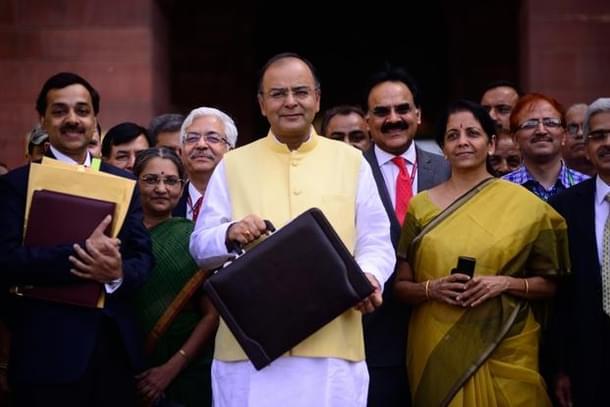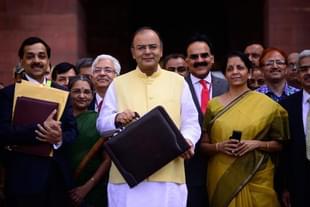Economy
We Should Not Rule Out A Second Budget, Or Mini-Budget, In Calendar 2017
R Jagannathan
Feb 03, 2017, 11:49 AM | Updated 11:49 AM IST
Save & read from anywhere!
Bookmark stories for easy access on any device or the Swarajya app.


The safe and fiscally prudent budget presented by Arun Jaitley on 1 February has surprised many, since the expectation was that it would be populist in nature, given the context of the forthcoming assembly elections in five states.
However, there may have been a very good reason – in fact, several good reasons – to stick to middle-of-the-road policies this time. This is because there is a fair chance that we will have a second budget, or at least a mini budget, later this calendar year.
The first reason for saying this is the obvious one: the goods and services tax (GST), which is to come in from 1 July, or latest by mid-September. In any budget, beyond the statement of economic and political objectives, it is indirect taxes that take up the bulk of the Finance Minister’s speech. So, when the GST Council decides rates for over 1,400 items, we will have a mini budget this year in the second half. If you are going to do that, it makes little sense to fire all your arrows in advance in February.
The second reason is the possible change in the fiscal year from April-March to January-December. A committee, led by former Chief Economic Advisor Shankar Acharya, is considering proposals for a change in the fiscal year, and one would not keep setting up committees to do this if one did not intend to make a change. (An earlier committee in 1985 had recommended a shift to the calendar year, but the government of the day chickened out. The Modi government seems unlikely to shrink from such a decision, if proposed by the committee).
Taken together with the need for a mini-budget post-GST, the logical time to introduce the calendar year budget is either this October, or next October. Both options work politically, since the Gujarat elections are due this December, and the Madhya Pradesh, Chhattisgarh and Rajasthan elections are due next year around the same time.
Even from a global perspective, where the IMF and the World Bank project growth based on calendar years, a January-December fiscal year allows India to align with global trends. Many big multinationals also follow a calendar year for accounting purposes.
The third reason is DeMo; the Reserve Bank, which is now busy counting the notes that have been surrendered, will know how many of the notes have not come in in a couple of months. This figure will be put out in its annual report due in August this year. If there is a surplus, it could substantially go into the government’s kitty as dividend, once the RBI’s liabilities on this count are extinguished. Then there is the PM Garib Kalyan Yojana – which allows those who deposited black money into bank accounts to pay 50 percent tax and block another 25 percent without interest to escape scrutiny. This scheme is open till the end of March, and if it gets good inflows, that again will change the taxation figures.
This points to the likelihood of a second budgetary package towards the end of the year, even assuming there is no fiscal year shift.
The fourth reason is 2019. Central governments tend to present vote-on-accounts in their last budgets in February, which is close to the Lok Sabha elections. While the Election Commission was willing to avoid playing spoiler this time, when the budget was presented before state elections, in 2019 it may not allow a regular budget before the Lok Sabha polls. The logical thing for the Modi government to do is move the budget to October 2018, which yields two benefits: it will come just before the crucial Rajasthan, MP and Chhattisgarh elections, and it gives it time to propose a reasonably populist budget and a six-month period to roll out the benefits visibly.
If a universal basic income is to be rolled out or cash put into Jan Dhan accounts, October 2018 is the ideal time to do it.
The political economy logic for a special budgetary package later this year and a shift in the fiscal year to October is unassailable. Doing it next year would give corporates and the government adequate time to get the processes changed in advance.
If we have a second budget this October-November, the NDA government will be unique in presenting six budgets in its five-year tenure. If the fiscal year shift happens only next year, we will still get a mini budget later this year. So the NDA gets five-and-a-half budgets to present.
Jagannathan is former Editorial Director, Swarajya. He tweets at @TheJaggi.





